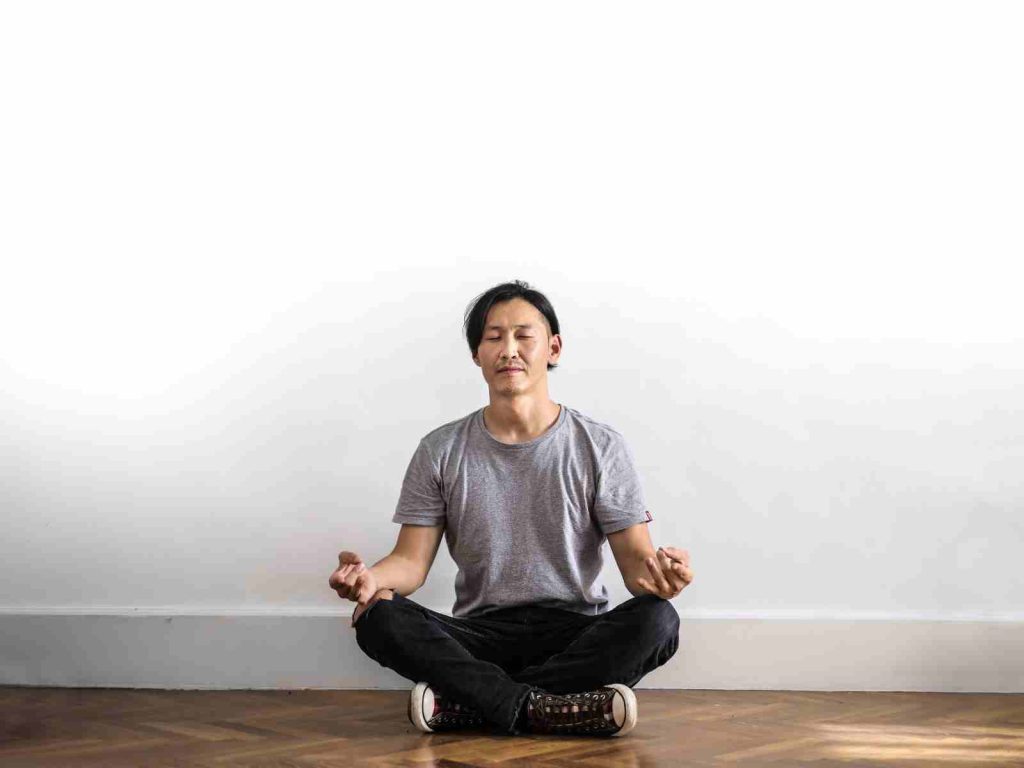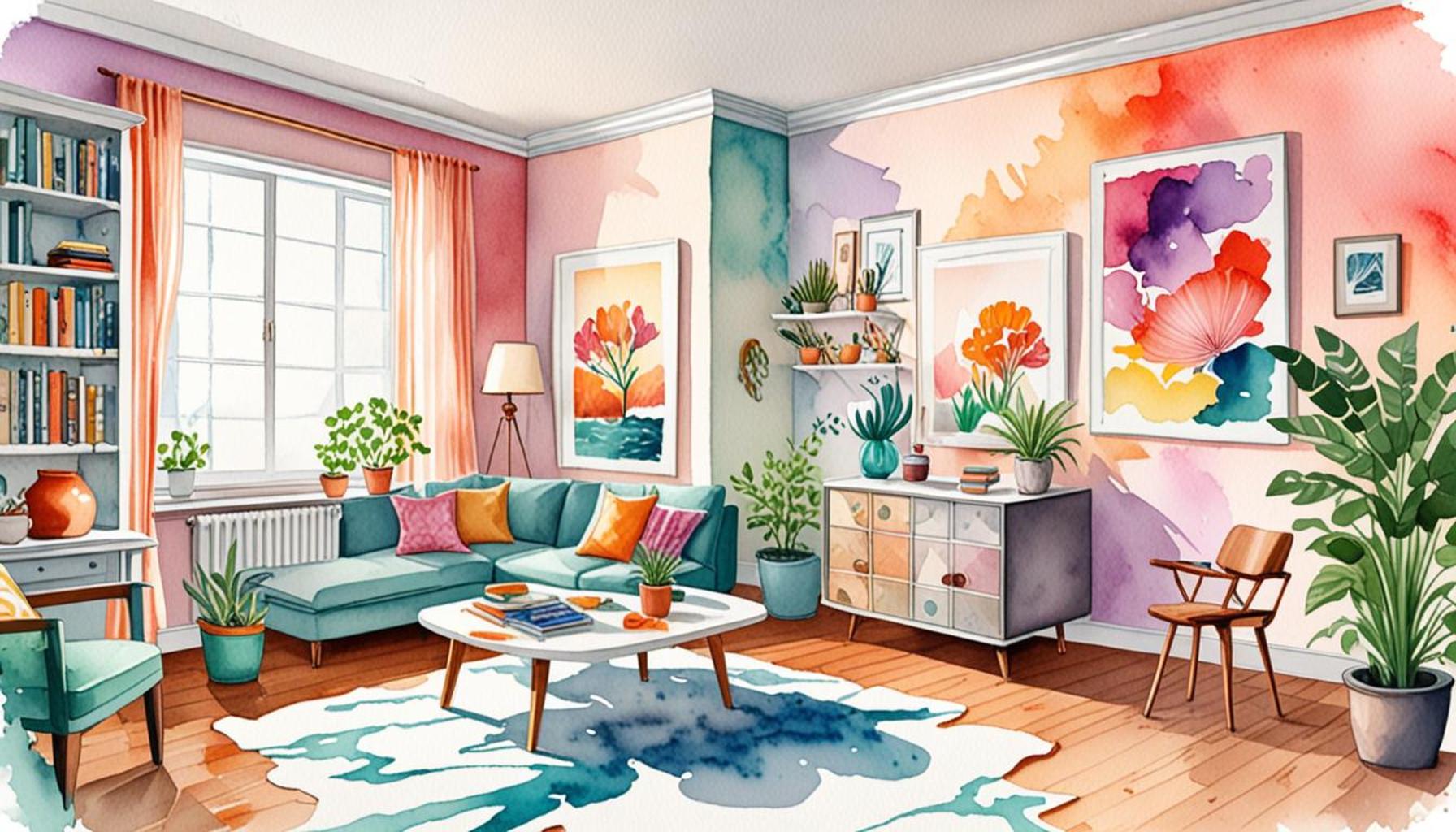Mindful Intentions in Minimalism: The Art of Prioritizing What Really Matters

The Essence of Mindful Intentions in Minimalism
In a society where the pace of life is rapid and the allure of consumerism is ever-present, the philosophy of mindful intentions offers a refreshing perspective. It encourages individuals to cut through the complexities of modern life to hone in on what truly matters. At its core, this approach advocates for a deliberate and thoughtful curation of one’s surroundings—be it personal belongings, daily routines, or social interactions. By consciously selecting what enriches our lives, we can foster deeper connections and ultimately derive greater satisfaction.
When embarking on a minimalistic journey, self-reflection is key. Individuals can consider questions such as:
- What brings me joy? Identifying sources of happiness can reveal which aspects of life to nurture.
- Which possessions are essential to my well-being? This prompts an examination of which items truly serve a purpose or bring value.
- Are my daily activities aligned with my long-term goals? Engaging in activities that align with personal aspirations sets a clear direction for growth.
Minimalism in the Nigerian Context
In Nigeria, the expression of minimalism can embody unique cultural nuances. For many, the emphasis lies not only on material possessions but also on fostering community connections. In a world increasingly focused on individualism, many Nigerians find joy in communal gatherings, where relationships and shared experiences take precedence over material wealth. Whether it’s enjoying a lively family event or participating in community services, the emphasis remains on the quality of relationships rather than quantity of items owned.
Moreover, the importance of shared experiences shines through activities such as local festivals, traditional ceremonies, and social gatherings, which serve to strengthen bonds within families and communities. This communal approach often promotes a collective focus on well-being over the pursuit of individualistic achievements.
Another significant aspect of minimalism in Nigeria includes cultivating environments conducive to mental health and productivity. By intentionally curating living and workspace, individuals can reduce distractions, leading to improved focus and a greater sense of purpose. For instance, one might choose to maintain a simple, decluttered living space that invites serenity and allows for clearer thinking, free from the chaos of excess.

The Benefits of Cultivating Mindful Intentions
Engaging in the practice of cultivating mindful intentions provides clarity in decision-making while enabling a significant shift in perspective. It encourages individuals to appreciate the beauty in simplicity, ultimately guiding them toward what is truly important. By decluttering both physical space and mental frameworks, individuals may unlock enhanced creativity, productivity, and overall joy.
As you navigate your own path toward minimalism, consider the profound impacts that come from prioritizing what truly resonates with you. The journey towards clarity, fulfillment, and intentional living can transform your landscape from one of chaos to one of meaningful simplicity.
CHECK OUT: Click here to explore more
Embracing Mindfulness Through Minimalism
Minimalism, at its core, is about stripping away the superfluous to highlight the essential aspects of life. When we embrace mindful intentions within this framework, we cultivate a lifestyle that prioritizes not only clarity but also harmony. Each decision becomes an opportunity to reinforce our values and aspirations, guiding us towards a more fulfilling existence. For many in Nigeria, where communal living often reigns supreme, the philosophy of minimalism offers a profound way to reconnect with what is fundamentally meaningful.
To begin this transformative journey, individuals are encouraged to take actionable steps that align with their core values. Here are several strategies that can be employed:
- Assess Your Surroundings: Conduct a thorough evaluation of your home and workspace. Identify items that serve no functional or emotional purpose. Consider donating or discarding belongings that clutter your environment, freeing up physical and mental space.
- Practice Gratitude: Regularly reflecting on what you are grateful for can enhance your appreciation for what you already possess. This can shift your focus from acquiring more to valuing your current assets.
- Curate Your Social Circles: Surround yourself with individuals who resonate with your values. Engage in relationships that nourish your spirit and contribute positively to your journey of minimalism.
- Limit Digital Clutter: In today’s digital age, online noise can be equally overwhelming. Regularly clean up your digital devices, including emails and social media accounts, to create a healthier online space that reflects your mindful intentions.
The Intersection of Mindfulness and Cultural Identity
In a Nigerian context, the integration of minimalism with mindfulness can take on various forms that resonate deeply with cultural heritage. For instance, traditional practices emphasize simplicity in daily living—think of the significance placed on sharing meals with family, where the experience of togetherness outweighs the abundance of food served. These communal aspects highlight how mindful intentions can elevate simple gatherings into cherished memories.
Another cultural reflection of minimalism in Nigeria can be seen in the arts, where craftsmanship often values quality over quantity. Artisans that create handmade goods ensure that every piece is thoughtfully designed, echoing the principles of minimalism. This appreciation for skilled craftsmanship not only supports local economies but fosters a connection to heritage—a vital part of the minimalist philosophy.
As we delve deeper into the realm of mindful intentions within minimalism, it is essential to recognize its potential to enrich both personal life and the collective community. By ensuring that each decision aligns with our values, we can pave the way towards an existence that truly resonates with us at our core, steering away from the distractions of modern consumer culture.
| Advantage | Description |
|---|---|
| Clarity of Purpose | By focusing on what truly matters, one gains a clearer understanding of personal goals and aspirations. |
| Enhanced Well-being | Reducing clutter and distractions promotes mental peace, allowing for improved mental health and emotional balance. |
Mindful intentions in minimalism encourage individuals to strip away excess and prioritize experiences and relationships over possessions. By cultivating a deeper awareness of one’s needs and desires, individuals can enjoy enhanced clarity of purpose. This clarity enables them to focus on meaningful pursuits, fostering personal growth.Moreover, adopting a minimalist lifestyle often leads to enhanced well-being. As one minimizes physical clutter, there is a corresponding decrease in mental clutter. This newfound space allows for a more tranquil mindset, generating opportunities for relaxation and introspection. Engaging in practices such as meditation can further amplify these benefits by encouraging mindfulness in everyday activities. Ultimately, the practice of *mindful intentions* and *minimalism* paves the pathway to a richer life experience filled with intention, focus, and emotional fulfillment. This transformative journey invites readers to explore more about how prioritizing what really matters can shift their lives profoundly.
LEARN MORE: This related article may interest you
Navigating Challenges on the Minimalist Journey
While the path of minimalism interwoven with mindful intentions offers a refreshing perspective, it is not without its challenges. In Nigeria, where material culture and consumerism are prevalent, individuals may often find themselves at odds with societal expectations. Embracing a minimalist lifestyle can elicit judgment from peers or family who may view minimalism as a rejection of abundance or a lack of ambition. Therefore, understanding and navigating these challenges is crucial for maintaining a commitment to what truly matters.
One major hurdle is the deeply ingrained desire for social acceptance. In many Nigerian communities, owning the latest gadgets and fashionable clothing is often equated with success. To counter this, practicing self-awareness becomes vital. Individuals need to remind themselves that their worth is not determined by material possessions but by their values, relationships, and contributions to society. Regular journaling, meditation, or conversations with like-minded individuals can reinforce this mindset, providing strength to adhere to minimalist principles amidst external pressures.
Another obstacle is the emotional attachment many have to their belongings. Sentimental items can weigh down the spirit and cloud decision-making. To navigate this, it can be helpful to adopt the practice of mindful decluttering. Instead of facing the daunting task of clearing out a space all at once, individuals can break it down into manageable segments. Focus on one room or category at a time, asking the question, “Does this item bring me joy or serve a practical purpose?” This reflective process allows for a more intentional and less emotionally fraught experience, paving the way for a more meaningful space.
The Role of Education and Community
The journey of minimalism is often enriched through education and community support. Local workshops or online forums can provide invaluable resources for sharing experiences, tips, and creative strategies that resonate with Nigerian culture. Such platforms not only offer practical advice on minimalism but also foster a sense of community, reinforcing that one is not alone in their pursuit of mindful living.
Moreover, partnerships with local artisans can enhance the minimalist lifestyle. By choosing to buy fewer but higher-quality handcrafted items, individuals can support local economies while minimizing mass-produced clutter. Initiatives like markets promoting sustainable products can help forge meaningful connections between consumers and creators, aligning perfectly with the minimalist ethos of valuing quality over quantity.
Additionally, embracing a less is more philosophy can extend to how one engages with community activities. Instead of spreading oneself too thin by participating in numerous events, individuals can focus on a few that truly align with their interests, allowing for deeper involvement and satisfaction. This intentional approach not only enhances personal fulfillment but also strengthens communal bonds, forging a collective identity grounded in shared values.
In this dynamic interaction between minimalism and mindful intentions, it becomes increasingly clear that prioritizing what truly matters is a continual journey of self-discovery, cultural reflection, and community engagement. By championing these principles, one can carve a path that genuinely reflects their aspirations and leads to a deeply fulfilling life.
RECOMMENDED: Check out this similar article
Conclusion: Embracing Mindful Minimalism for a Fulfilling Life
As we navigate through the intricate tapestry of life, the philosophy of minimalism anchored in mindful intentions serves as a compass, guiding us toward a more intentional existence. This journey invites individuals to shed the burdens of excess and instead focus on cultivating spaces that resonate with their true values and aspirations. Whether in the context of bustling markets in Lagos or serene villages across Nigeria, the principles of minimalism can transcend geographic boundaries, fostering a deeper connection with both self and community.
Aligning oneself with a less is more mindset not only creates an environment conducive to greater clarity and joy, but it also empowers individuals to build relationships rooted in authenticity and shared purpose. The act of mindful decluttering can pave the way for personal breakthroughs, enabling one to discover what genuinely enriches their life amidst distractions and societal noise. It is essential to remember that the journey is not a solitary one; by engaging with community resources or local artisans, we can transform our minimalist efforts into shared experiences that uplift both ourselves and those around us.
In essence, embracing minimalism with mindful intentions encourages a profound shift in how we perceive success, fulfillment, and happiness. As we foster deeper connections and cultivate personal integrity, we are not only prioritizing what really matters but also challenging prevailing norms that equate material wealth with self-worth. Thus, the art of mindful minimalism becomes a transformative practice—one that champions simplicity, nurtures the spirit, and ultimately leads us toward a richer, more meaningful life.


